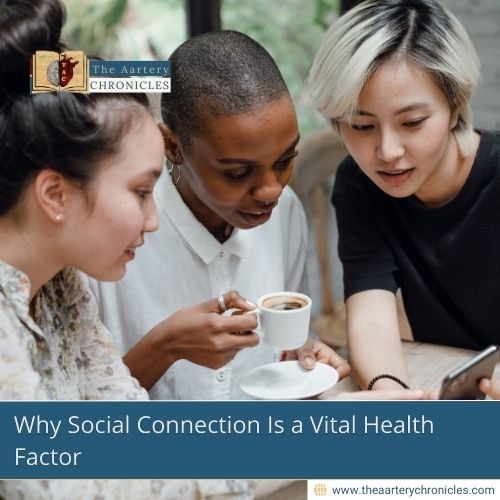

Why Social Connection Is a Vital Health Factor
Summary: Despite solid evidence that social connection is vital to physical health, most people, including doctors, still underestimate its impact. Two new studies led by Julianne Holt-Lunstad reveal how little society recognises the health risks of loneliness and isolation, even post-COVID. The research calls for better awareness, healthcare training, and public health campaigns to treat social connection as a true health vital sign.
Do You Know How Much Loneliness Affects Your Health?
Despite mounting evidence, most people, including medical professionals, still underestimate the role of social connection in physical health.
Here, you’ll discover the science behind social relationships and why loneliness and isolation deserve the same attention as high blood pressure or smoking. With insights from groundbreaking studies, we unpack how the medical community and society are overlooking this critical factor and what needs to change.
Social Connection: The Overlooked Health Vital
She’s spent years researching the health effects of loneliness and led key projects like:
- A landmark 2010 meta-analysis
- A 2023 treatment framework
- The 2023 U.S. Surgeon General Advisory on loneliness
- Ongoing collaboration with the World Health Organisation to develop a global health agenda on social connection
So, the science is solid. But are we listening?
Most People and Doctors, Still Don't Get It
Despite the data, most people still don’t recognise social connection as a health issue. Holt-Lunstad and her PhD student, Andrew Proctor, conducted two major studies to test public and medical perceptions.
Their findings?
“Social connection is like a vital sign. What if we didn’t care about high blood pressure? Or what if we never knew smoking was bad for us?” — Andrew Proctor
They surveyed 2,392 adults across the U.S., UK, and Australia. Even after the pandemic, when loneliness was trending, the results showed that people, regardless of how connected they were, still underestimated the health risks of loneliness and isolation.
Doctors Are Underestimating It Too
One might assume healthcare providers would know better, but the second study showed otherwise. Researchers surveyed 681 doctors and medical professionals, and guess what?
They too downplayed the role of social connection in physical health.
- Interestingly, physicians from UCSF rated it slightly higher than those from the University of Utah. Why? Likely because UCSF has programs like the Social Interventions Research and Evaluation Network and had just received the Surgeon General’s Advisory when surveyed.
- This shows that institutional support and education make a difference.
Awareness Is Just the First Step
“Awareness can make a difference,” says Holt-Lunstad. “It’s the first step, but awareness isn’t enough.”
Her research team advocates for:
- Better training for healthcare professionals
- Curriculum updates in K-12 and med schools
- National campaigns to destigmatise loneliness
- Practical tools like social prescribing
What Is Social Prescribing?
Social prescribing means doctors suggest community or social activities (like volunteering or group classes) to improve a patient’s mental and physical health. It’s already gaining traction in countries like the UK and experts like Holt-Lunstad believe it can help bridge the treatment gap.
Final Thoughts: Time to Treat Loneliness Like Blood Pressure
Despite the evidence, society still fails to treat social connection as a true health vital sign. But that can change with more
- Awareness
- Education
- Policy shifts
If we’ve learned anything from COVID, it’s that isolation isn’t just emotionally draining, it’s physically dangerous.
Let’s make social connection a priority. Not just in our personal lives, but in our healthcare system, too.

Dane
I am an MBBS graduate and a dedicated medical writer with a strong passion for deep research and psychology. I enjoy breaking down complex medical topics into engaging, easy-to-understand content, aiming to educate and inspire readers by exploring the fascinating connection between health, science, and the human mind.








